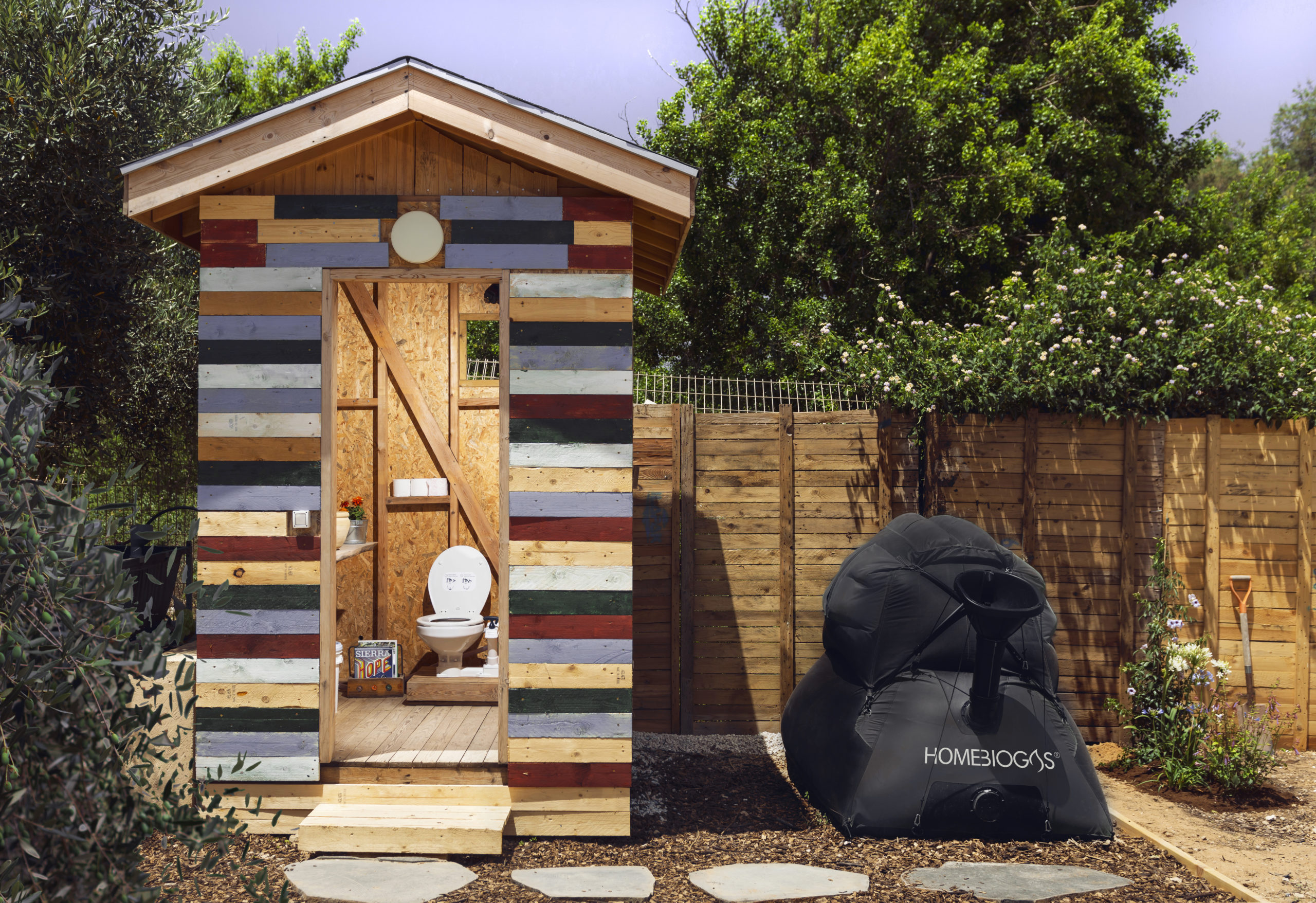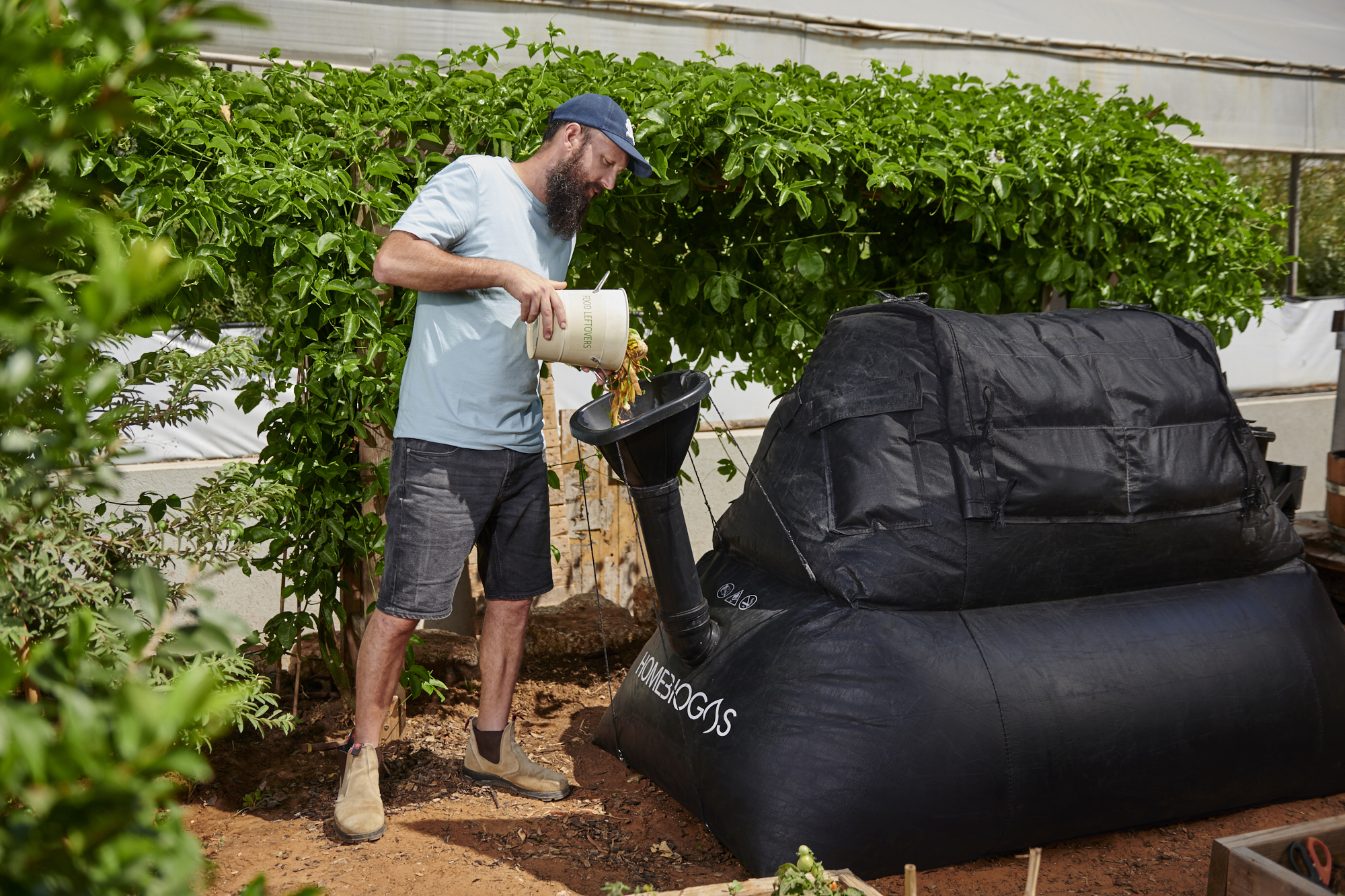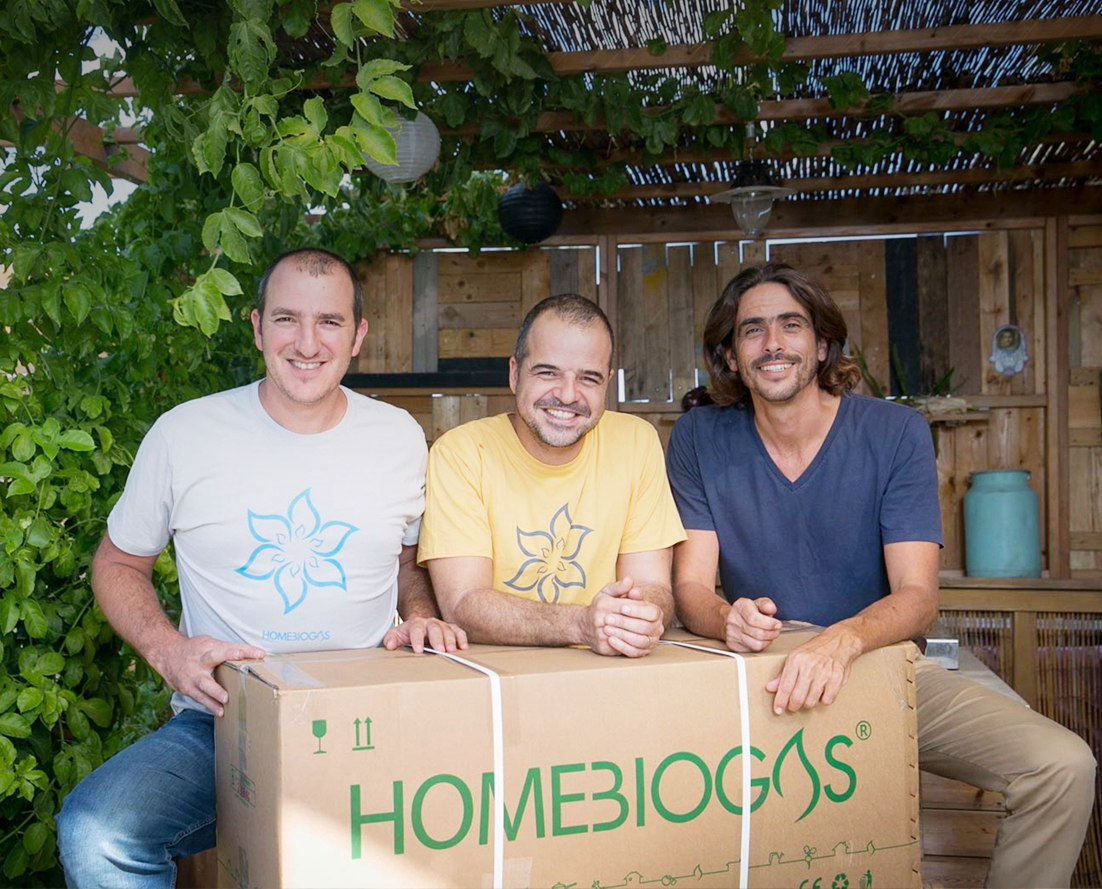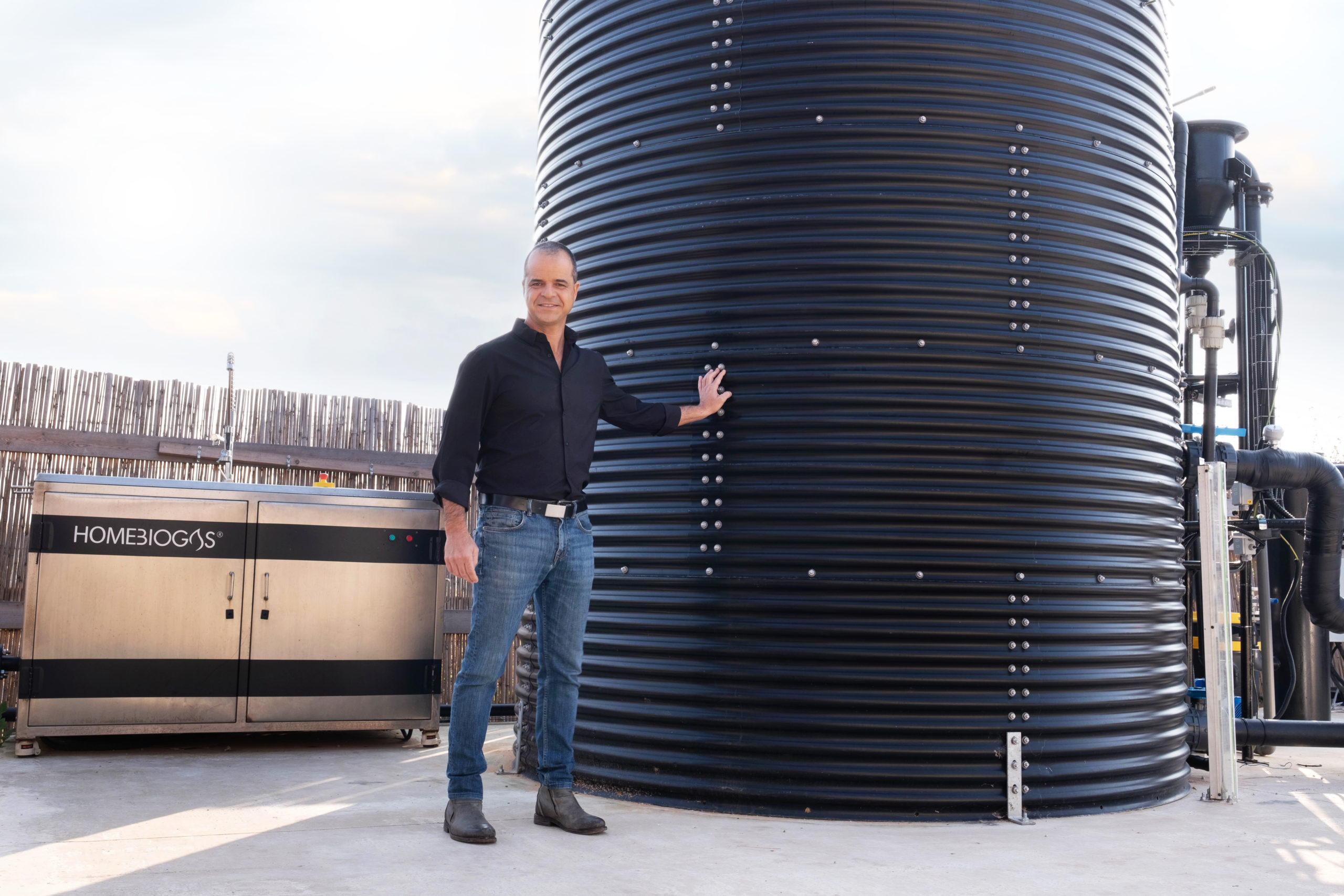February 11 – HomeBiogas, an Israel-based company developing biogas systems that convert organic materials into renewable energy and fertilizer, successfully completed its initial public offering (IPO) in Israel, with a valuation of NIS 310 million after money, or approximately USD 94 million. The IPO was oversubscribed and HomeBiogas chose to raise approximately NIS 100 million which was received from the largest and leading institutional investors in the market, including provident funds, insurance companies and pension funds. Monday, February 1, was its first day trading.
HomeBiogas’ IPO reflects the growth in demand for more sustainable and local solutions, solving two major challenges: waste management and clean energy. Their household and community-size anaerobic digesters transform organic waste into clean energy and liquid fertilizer, saving on waste removal and energy costs. HomeBiogas also recently launched their BioToilet, offering a sanitation solution for communities without sewer infrastructure. Today, the company leads the establishment of an international standard for household biogas systems, holding international patents and European CE certificate, with stringent standards and safety requirements.

The continued growth of HomeBiogas comes at a critical time, in the midst of COVID-19 stay-at-home mandates that have shifted consumer habits and demands toward local alternatives that rely less on complex, often opaque global supply chains. With food waste continuing to mount around the world––worth roughly USD 680 billion in industrialized countries and USD 310 billion in developing countries––solutions that mitigate the loss of these valuable resources have become essential.
Since its founding, HomeBiogas has experienced consistent and extensive growth, selling over 10,000 systems in more than 100 countries in recent years. In the developing world, more than 3 billion people still use wood and charcoal for cooking, while 2.5 billion do not have access to toilets. HomeBiogas’ systems can transform their lives, creating a local closed loop system that generates value for years to come.

The recent IPO will accelerate HomeBiogas’ growth into additional markets, including North America, helping expand the solution at a larger scale into commercial operations in restaurants, hotels, universities, hospitals and others, generating significant savings in costs of organic waste removal, energy savings and a significant reduction in carbon footprint. Through the IPO, HomeBiogas also plans to increase production and sales in selected countries, through partnerships with local distributors. HomeBiogas’ founders Oshik Efrati (CEO), Erez Lantzer (CFO) and Yair Teller (CSO), continue to be engaged in the development, production and marketing of biogas systems for household and commercial markets. Leading circular economy investor Closed Loop Partners, global energy firm Engie and family office JS Capital are also major shareholders in HomeBiogas.
 “HomeBiogas’ IPO is a market signal for the growth of local systems that circulate valuable resources, especially food and energy. By expanding its reach across the globe, HomeBiogas can create positive economic, social and environmental outcomes at scale, while maintaining deep roots in the local communities it serves,” says Ron Gonen, CEO of Closed Loop Partners. “We are proud to be a founding and longstanding investor in the company and continue to work closely with their team, and look forward to seeing the essential role HomeBiogas will play in advancing the circular economy.”
“HomeBiogas’ IPO is a market signal for the growth of local systems that circulate valuable resources, especially food and energy. By expanding its reach across the globe, HomeBiogas can create positive economic, social and environmental outcomes at scale, while maintaining deep roots in the local communities it serves,” says Ron Gonen, CEO of Closed Loop Partners. “We are proud to be a founding and longstanding investor in the company and continue to work closely with their team, and look forward to seeing the essential role HomeBiogas will play in advancing the circular economy.”
“This major step for HomeBiogas is also a milestone in the decentralized biogas from organic waste sector,” says Johann Boukhors, Managing Director of Engie New Ventures. “By maximizing the potential of local organic material in creating useful renewable energy for multiple types of customers, HomeBiogas bolsters the local infrastructure needed to participate in a more sustainable future built on clean, affordable, resilient energy.”

“The trust we received from the Israeli capital market, together with the rising demand for biogas systems in the world, proves how relevant and necessary our product is. Its growth rate and production efficiency allow us to deepen our entry into our target markets and increase the sales potential,” says Oshik Efrati, Founder and CEO of HomeBiogas. “I believe that the ability for any person or organization to produce energy from leftover organic waste is not far. This will reduce our dependence on fossil energy, as well as the environmental pollution and greenhouse gases resulting from the transportation and landfilling of waste. Countries and organizations are rapidly moving in this direction, both in legislation and investments. Combining our technology and knowledge with our powerful shareholders will allow us to be a leading player in the field.”
About HomeBiogas
HomeBiogas is a world leader in developing groundbreaking, simple to use biogas systems. Enabling people and businesses around the globe to turn their own organic waste into self-made clean energy, on-site. Since 2012, HomeBiogas has served thousands of households, farmers, businesses, underserved communities,and those seeking a more sustainable way of living with over 10,000 biogas systems in over 100 countries around the world. Our prefabricated, fully off-grid, patent-based systems offer modular options to suit each of our customer ‘s needs, empowering them to live a healthier, more efficient, self-resilient, and sustainable life.
About Closed Loop Partners
Closed Loop Partners is a New York-based investment firm comprised of venture capital, growth equity, private equity and project finance, as well as an innovation center focused on building the circular economy. The firm has built an ecosystem that connects entrepreneurs, industry experts, global consumer goods and technology companies, retailers, foundations, financial institutions and municipalities. Their investments align capitalism with positive social and environmental impact by reducing waste and greenhouse gas emissions via materials innovation, advanced recycling technologies, supply chain optimization and diversion of materials from landfills. Learn more at www.closedlooppartners.com.
About ENGIE New Ventures
ENGIE New Ventures (ENV) is the corporate venture arm of ENGIE, the global energy and services provider. ENGIE is committed to lead the energy revolution, towards a more decarbonized, decentralized and digitized world. ENV is a €180 million investment fund focused on making minority investments in innovative start-ups. Since 2014, ENV has deployed over €140 million of capital across 26 investments, in disruptive start-ups leading the energy transition and active in energy efficiency, renewable energy, energy storage and demand response, mobility and IoT. ENV’s offices are represented in Paris, San Francisco, Singapore and Tel Aviv. Please visit: www.engieventures.com.



 “HomeBiogas’ IPO is a market signal for the growth of local systems that circulate valuable resources, especially food and energy. By expanding its reach across the globe, HomeBiogas can create positive economic, social and environmental outcomes at scale, while maintaining deep roots in the local communities it serves,” says Ron Gonen, CEO of Closed Loop Partners. “We are proud to be a founding and longstanding investor in the company and continue to work closely with their team, and look forward to seeing the essential role HomeBiogas will play in advancing the circular economy.”
“HomeBiogas’ IPO is a market signal for the growth of local systems that circulate valuable resources, especially food and energy. By expanding its reach across the globe, HomeBiogas can create positive economic, social and environmental outcomes at scale, while maintaining deep roots in the local communities it serves,” says Ron Gonen, CEO of Closed Loop Partners. “We are proud to be a founding and longstanding investor in the company and continue to work closely with their team, and look forward to seeing the essential role HomeBiogas will play in advancing the circular economy.”
